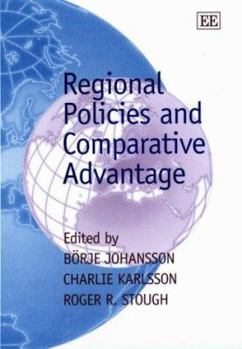Regional Policies and Comparative Advantage
This book analyses the conception of economic development in modern regions, which has gone through a fundamental change since the early 1980s. Regions are today increasingly looked upon as independent market places that are connected via interregional and international trade and not as administrative units embodied in a national state. Two complementary theoretical frameworks explain the specialization of economic activity at the regional level. The traditional approach assumes that the comparative advantages of regions depend upon differences in the supply of lasting resources. In contrast the new complementary framework called the New Economic Geography, assumes that the dynamic interaction between geographical market potentials and rational firms in its own way creates the comparative advantage of regions. The contributors to this book examine the policy implications of the complementarity of the competing views in a variety of geographic and functional contexts. The first set of papers examines the effect of regional policy on firm locational decision-making. This leads to another set evaluating a variety of regional policy efforts. New and different methodological approaches are examined in another set of papers. The final part of the book focuses on new concepts. Economists, geographers and readers interested in regionalization, trade and development will find this book informative.
Format:Hardcover
Language:English
ISBN:1840648341
ISBN13:9781840648348
Release Date:October 2002
Publisher:Edward Elgar Publishing
Length:544 Pages
Customer Reviews
0 rating





